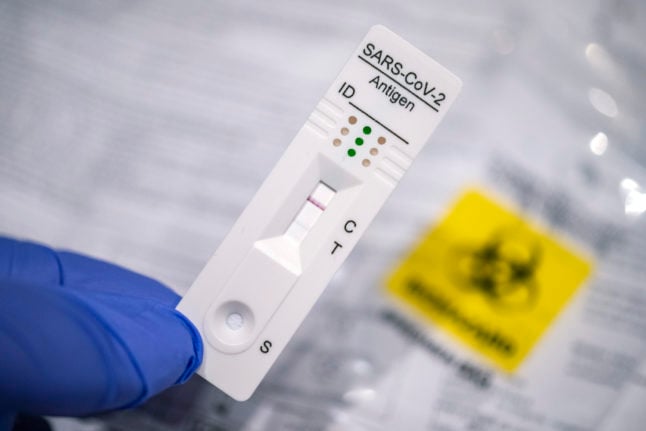Söder said the government’s revised Infection Protection Act exposed Germany to new virus variants without any protection.
He told Bild am Sonntag that the coalition government’s plans had gaps and weaknesses:
“Basically, there aren’t any real protective measures any more. This means that we are defenceless against new mutations come autumn. Doing away with masks in such a widespread manner is therefore premature and could quickly lead to infection spreading in schools, for example,” the CSU politician said.
Söder, who is part of the opposition, was particularly critical of Minister of Health Karl Lauterbach (SPD).
“The Minister of Health is expecting new waves and the government wants to abolish all measures at the same time,” he said.
“If the government has its way, Covid will be history next week. But that’s not the reality.”
As The Local has been reporting, Germany is set to drop almost all Covid restrictions from March 20th, but basic measures will remain.
The new legal basis for Covid restrictions after this date provides that measures such as wearing masks and testing can continue in areas where it is needed, Lauterbach has said.
READ ALSO: Germany’s planned Covid strategy after ‘freedom day’
Doctors have also expressed concern about the relaxing of restrictions.
Given the rising infection levels, president of DIVI (the German Interdisciplinary Association of Intensive Care Medicine and Emergency Medicine), Gernot Marx, called for it to remain compulsory to wear masks in public indoor spaces, the newspapers of the Funke media group reported on Saturday.
“Wearing masks is a proven and simple protective measure. It would be a mistake to give this up when it’s not necessary to do so,” Marx told the papers, explaining that people could protect themselves and others from infection by wearing one.
And Gerald Gaß, head of the German Hospitals Association warned that of the wider impact with increasing numbers of hospital staff absent due to illness or quarantine, DPA reported.
On Sunday, Germany reported a significant rise in daily Covid infections and the seven-day incidence rate rose above 1,500 for the first time.
The data from the Robert Koch Institute (RKI) showed that there were 1,526.8 new infections per 100,000 people, up from 1,496 a day earlier and 1,231.1 a week earlier.
Health offices logged 146,607 confirmed new Covid-19 infections within the latest 24-hour period, well above the 116,889 cases counted last Sunday.
There were also 50 further deaths in connection with the virus over the same period.
READ ALSO: Germany pledges to stick with vaccine mandates despite Austria U-turn



 Please whitelist us to continue reading.
Please whitelist us to continue reading.
IFF they do decide to keep masks mandatory, it would be a good time to make FFP2 masks the only acceptible ones, as they are so much more effective than surgical masks.
But I’m sure me saying this will trigger the usual “masks have been proven to be useless” crowd to comment! 😉